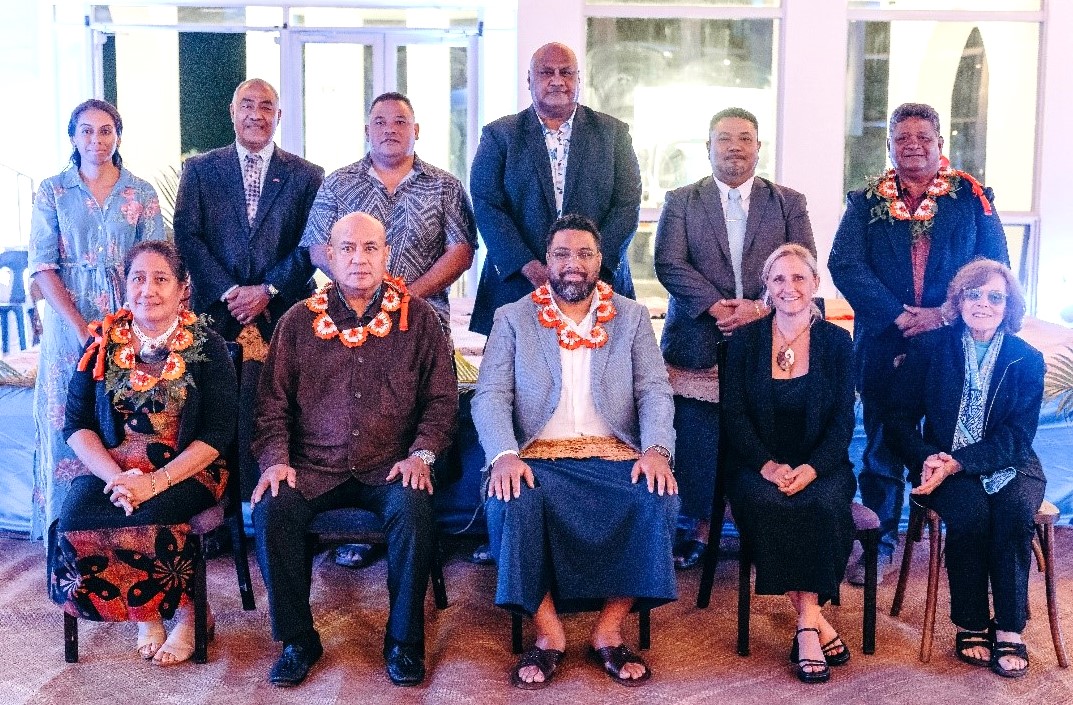As leaders and ocean champions converged in Tonga for the Pacific Islands Forum (PIF) Leaders Meeting, the spotlight was firmly placed on the Pacific Ocean.
On 24 August, the Pacific Ocean Alliance (POA) held its inaugural Alliance event, organised by the Office of the Pacific Ocean Commissioner (OPOC) on the sidelines of the Forum.
This marked a significant moment as ocean issues, often relegated to the sideline, were brought to the forefront alongside critical topics like climate change and financing.
The POA, a multi-stakeholder coordination mechanism established by Pacific Island Forum Leaders through the 2010 Regional Ocean Policy, convened during the PIF Leaders meeting week, signaling a shift in priorities. The event emphasised the growing importance of the Pacific Ocean, which has drawn increased global interest in recent years.
Chief Executive Officer of the Ministry of Energy, Information, Disaster, Environment, Communication, and Climate Change (MEIDECC), ‘Akau’ola, welcomed participants to Tonga, emphasising the importance of information-sharing mechanisms.
He stressed the need to keep all stakeholders informed of ocean developments, even when interests diverge.
‘Akau’ola also highlighted Tonga’s achievements in marine spatial planning and marine protection, setting a high standard for the region.
Prime Minister Feleti Teo of Tuvalu, a seasoned advocate for oceanic issues, shared his extensive experience in the ocean space. His involvement in the creation of the Framework for Pacific Oceanscape in 2010 underscored the importance of collaboration with partners to address ocean challenges. Teo’s remarks reinforced the need for coordinated efforts among all ocean stakeholders.
The event featured prominent guest speakers who emphasised the critical role of the Pacific Ocean Alliance in promoting coordination and coherence on ocean matters.
Palau’s Permanent Representative to the United Nations, Ambassador Ngedikes Olai Uludong, highlighted Palau’s pioneering efforts, including its status as the first country to ratify the Biodiversity Beyond National Jurisdiction (BBNJ) Treaty, its progress in plastic treaty negotiations, and its role as the host of the Office of the Pacific Ocean Commissioner.
Sefanaia Nawadra, Director General of the Secretariat of the Pacific Regional Environment Programme (SPREP), acknowledged the role of regional organisations like the Council of Regional Organisations of the Pacific (CROP) in supporting OPOC.
He also recognised the emergence of new players in the ocean space and urged a focus on innovative approaches to existing challenges.
The event was further elevated by the presence of renowned oceanographer Dr. Sylvia Earle, whose participation was both monumental and inspiring.
Dr Earle shared her wealth of scientific knowledge and insights on ocean conservation, encouraging attendees to contribute meaningfully to the protection of the Pacific Ocean.
The Pacific Ocean Alliance, under the auspices of the Pacific Ocean Commissioner, is poised to play a pivotal role in the region’s ocean governance.
Dr Filimon Manoni, Deputy Secretary General of the Pacific Islands Forum Secretariat, is working to bring together the POA, with plans for future events, including webinars and dedicated POA spaces. These initiatives will culminate in the Pacific Ocean Alliance Triennial Meeting in April 2025 and the United Nations Ocean Conference in France in June 2025.
As the Pacific Ocean continues to garner global attention, the POA’s role in coordinating efforts and advocating for the region’s oceanic interests is more critical than ever. The event in Tonga marked a significant step forward in ensuring that ocean issues remain central to the region’s agenda, reflecting the Pacific’s deep connection to its vast and vital marine resources.














